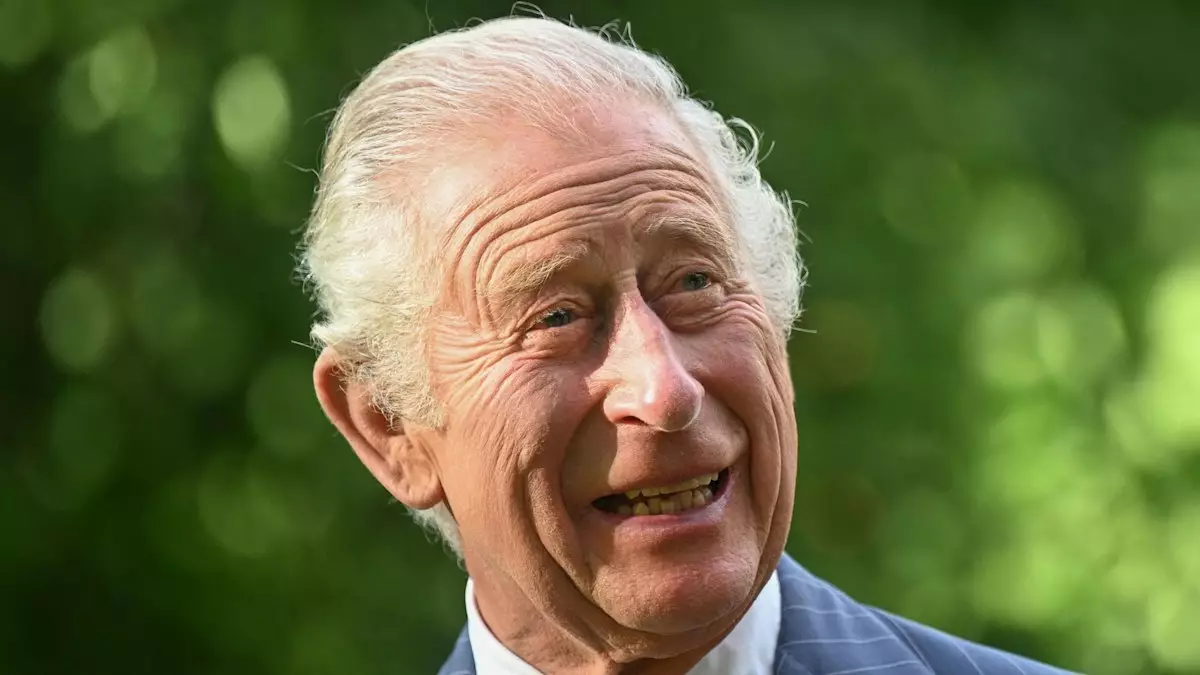King Charles III has never been one to conform to tradition simply for tradition’s sake. Long before ascending to the throne, he carved out a unique identity through his groundbreaking environmental advocacy, challenging entrenched norms within both the British monarchy and society at large. This defiance wasn’t mere rebellion but stemmed from genuine foresight and commitment to sustainable living. His pioneering experiments in organic farming and ecological conservation marked him not just as a royal, but as an innovator willing to withstand criticism to champion causes that were ahead of their time.
At a time when the agricultural sector heavily depended on antibiotics and chemicals, Charles boldly transformed his Gloucestershire estate, Highgrove House, into an organic farm. This was met with skepticism and ridicule by many; some vowed him a “complete idiot” for seemingly ignoring established agricultural practices. Yet, Charles’ concerns over the overuse of antibiotics and chemical inputs anticipated today’s widespread issues of resistance and environmental degradation. His persistence was prescient, reflecting an understanding of ecological balance that has since become mainstream in sustainable agriculture.
Championing Organic Farming and Ecological Innovation
Organic farming has become a hallmark of progressive agriculture worldwide, but Charles’s early advocacy played a crucial role in elevating its profile in Britain. Despite stepping back from farming at the Home Farm, he continues to maintain organic practices on the Sandringham estate, reinforcing his commitment beyond gestures. His efforts illustrate how leadership—especially from high-profile figures—can accelerate cultural and industry-wide shifts toward sustainability.
Beyond farming, Charles has long campaigned to tackle pollution and reduce food waste, issues that remain pressing in environmental discourse. His willingness to tackle subjects like plastic pollution and river contamination decades ago demonstrates consistent dedication rather than a fleeting interest. Many dismissed these initiatives as eccentric or unrealistic, especially his 21-year-old self’s warnings about chemical impact on ecosystems. Nonetheless, his early warnings foreshadowed the current global environmental agenda focused on pollution control and biodiversity conservation.
Innovating Sustainability in Everyday Life
King Charles’s environmental vision extends beyond policy advocacy into tangible lifestyle adaptations. For instance, his modification of a classic Aston Martin to run on biofuel made from English white wine and whey showcased a creative fusion of tradition and innovation. This experiment not only reduced carbon emissions but also exemplified how heritage and environmental responsibility can coexist.
More recently, his adoption of an electric BMW, equipped with cutting-edge battery technology, signals a commitment to sustainable transportation at the highest echelon of British royalty. Such choices—far from symbolic trivialities—signal the importance of embracing green technologies in everyday life, even among the elite.
Embracing a Holistic Environmental Philosophy
What distinguishes King Charles from many environmental advocates is his holistic approach, which includes a spiritual relationship with nature. His long-standing habit of speaking to plants, once mocked by the media as quirky eccentricity, reflects a profound respect for the natural world’s complexity. Contemporary science has begun to validate some of these intuitive understandings, uncovering fascinating communication networks among plants and trees.
The recent BBC series “The Green Planet” validated this perspective, emphasizing how flora interact in competitive yet cooperative ways—a revelation that ultimately vindicates Charles’s unconventional views. Far from being outdated or odd, his philosophy embodies an integrated approach toward ecosystems that values respect, empathy, and coexistence with nature.
Confronting Criticism and Shaping Future Leadership
King Charles’s environmental journey is as much about enduring criticism as it is about effecting change. His initiatives have often been dismissed, mocked, or misunderstood, particularly in his early years. Yet, such resistance underscores both the radical nature of his vision and the rigidity of traditional institutions resistant to change. The fact that many of his once-dismissed ideas are now embraced widely serves as a testament to his perseverance and insight.
As monarch, Charles brings an unusual blend of moral leadership and environmental activism, challenging the passive, ceremonial role often expected of him. His example encourages future leaders—royal or otherwise—to approach stewardship boldly, prioritize science-based sustainability, and not shy away from ideas that may initially seem unpopular or unconventional. In a time when environmental crises demand urgent action, his boldness is not merely commendable but necessary.

